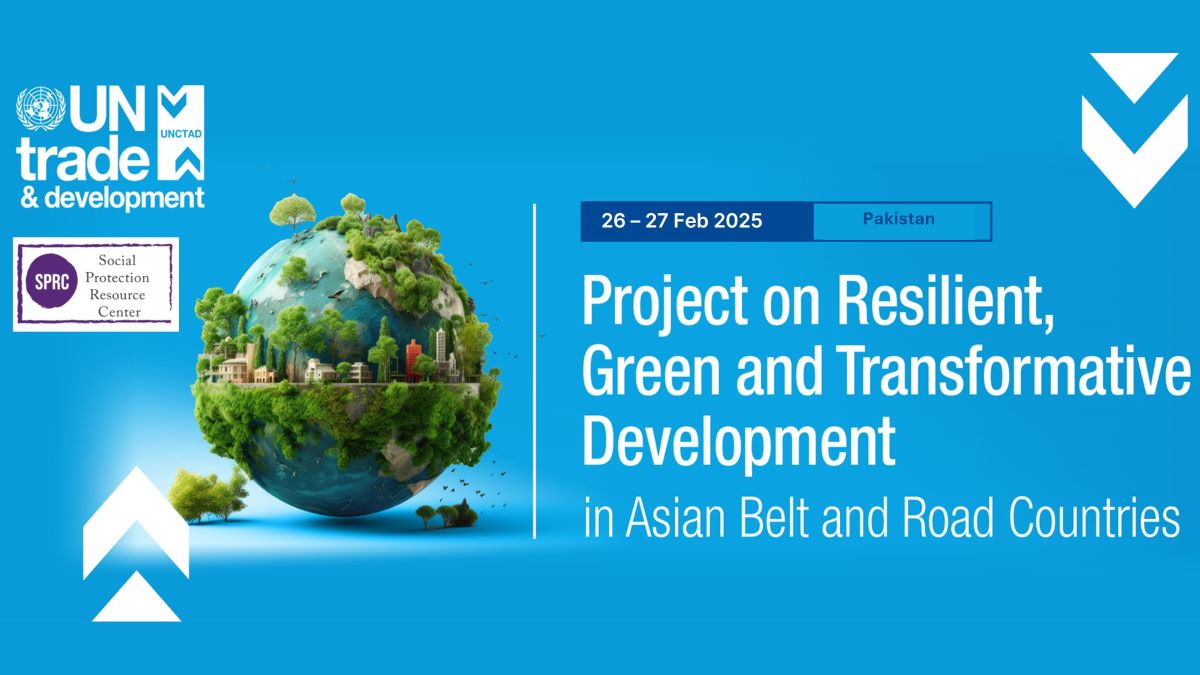Given pressing multifaceted challenges of climate change and development, it is more imperative than ever for developing countries to adopt innovative and integrated policy strategies to pursue resilient, green, and transformative development. To contribute to the debate on how to address these multifaceted challenges from the perspective of developing countries, United Nations Trade and Development (UNCTAD) has developed a project that aims to assist four major developing countries in Asia – Kazakhstan, Malaysia, Pakistan and Türkiye - in their efforts to meet the Sustainable Development Goals (SDGs) related to green transformative development. In particular, the project is designed to assist the participating countries in achieving the 2030 Agenda through 1) effective integrated policy strategies and improved capacity at national level, including South-South peer-learning; and 2) economic cooperation and policy coordination at the regional level.
Pakistan is among the top ten most climate vulnerable countries in the world, experiencing climate change related natural disasters at high and increasing frequency. Adapting to climate change through green industrialisation is therefore of key importance to any development strategy aiming to address the deep structural problems and perennial macroeconomic instabilities and vulnerabilities that have beset Pakistan’s economy for some time.
Given complex interrelations between core constraints on green transformation in Pakistan – such as a lack of awareness of greening practices, an absence of credible pressure on industry players to engage in greening activities and green innovation, an inadequate availability of green finance and data constraints - as well as Pakistan’s fragile macroeconomic situation, it is perhaps unsurprising that a systematic and coordinated policy conceptualisation of green industrialisation is as yet limited. In this context, this project provides an excellent opportunity to support policymakers in their efforts to overcome bottlenecks at the national and provincial levels as well as through the creation of synergies at regional levels to relevant exchange policy experiences.
Purpose and key objectives
Under the project, UNCTAD, in close cooperation with its local partner, the Social Protection Resource Centre (SPRC) in Islamabad, held a successful first national consultation in 2023 that centred on binding constraints and core challenges for Pakistan’s green structural transformation, based a range of sectoral and thematically specific findings for the industrial, agricultural, transport and textile sectors and for the financing of green transformation.
This second high-level national consultation will once again bring together national and regional policymakers, researchers and stakeholders from the private sector as well as civil society to discuss (a) two new studies on 6 sub-sectors that focus attention on the critical role of selected sub-sectors in advancing a green industrialisation agenda effectively and associated methodologies, (b) a fully-fledged proposal for an integrated green industrialisation policy framework for Pakistan, taking account of policy recommendations made in earlier stages of the project, and (c) an UNCTAD proposal for an Asian Green Development Policy Network to facilitate the creation of regional synergies on relevant policy experiences and approaches.
The meeting comes at an opportune moment for Pakistan given the establishment, in May 2024, of the Pakistan Climate Change Authority by the Ministry of Climate Change and Environmental Coordination under the 2017 Climate Change Act, and the unveiling of Pakistan’s first-ever National Climate Finance Strategy (NCFS) at COP 29 in Baku in November 2024. These recent initiatives, seeking to strengthen Pakistan’s institutional infrastructure to combat climate change, provide a rich context for up-to-date discussion and debate at this national consultation meeting.

